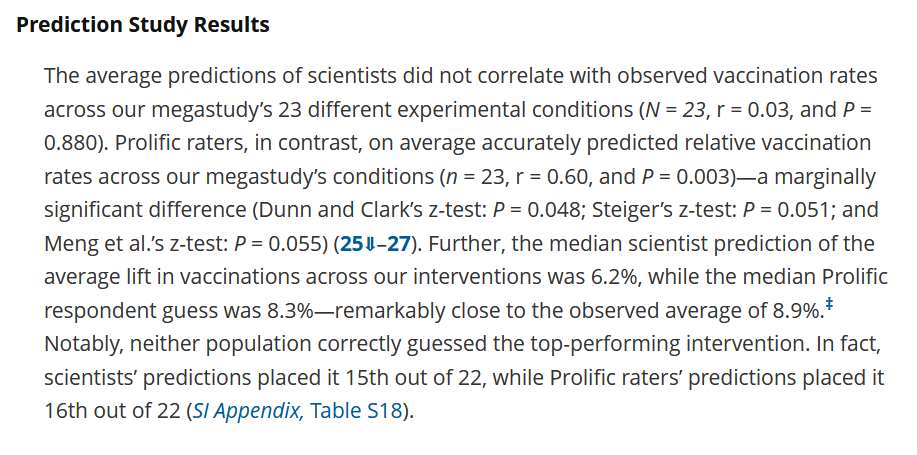Thinking of making a #NewYearsResolution for 2023? Here’s what #science says about whether and how to proceed… 🧵
First, you’re in good company. Lots of people use fresh start dates like new year’s to motivate goal pursuit. If Jan 1 gives you a sense that your past failures are history and makes you think big picture about your goals, great. No reason not to lean into it! Cc: @hengchen_dai 

Setting goals also reliable helps you achieve more. The best goals are specific and stretch you to push harder than usual. They are also measurable. 

It’s useful to break your specific goal down into bite-sized pieces. So don’t say “I’ll volunteer 200 hours this year.” Instead say “I’ll volunteer 200 hours this year, and I’ll do it 4 hours every week.” Cc: @aneeshrai17 

Plan for exactly how you’ll follow through on your weekly or daily goal. When will you do it? Where will you do it? What’s the situation that will remind you to act? Just as a performer needs a cue to say their lines, you’ll also benefit from a cue! 

Find a fun way to pursue your goals. We mistakenly think the long-term benefits of success will be enough to spur us on but it’s actually critically important to enjoy goal pursuit. If you don’t, you won’t persist. Mary Poppins was right! Cc: @ayeletfishbach @Kaitlin_Woolley 

How can you make goal pursuit fun? Consider only allowing yourself to enjoy a temptation you crave (say, watching a favorite lowbrow show or eating a certain snack) while pursuing your goal (e.g. exercising at the gym or hitting the library). It’s called “temptation bundling”. 

Is your goal to quit something? Then consider a penalty clause. You can fine yourself for failing. Just put money on the line that you’ll have to forfeit if you don’t succeed. It’s useful to increase the price of your vice. Websites like @stickK can help. Cc: @deankarlan 

If you hope to build a new habit, repetition and rewards matter, but rigidity is the enemy of long-term success. Build elastic habits by practicing flexible routines. If you always exercise at the same time, you’ll think it’s the only option. Practice plan B. Cc: @johnbeshears 

You can achieve more when you set tough goals that build in a little slack for emergencies. Aim to meditate 7 days a week but give yourself up to 2 emergency skip days and you’ll achieve more than if you aim for 5 or 7 days of meditation w/o slack. Cc: @marissa_sharif @ProfShu 

Have a growth mindset when you pursue your goals. That means viewing missteps as learning opportunities and recognizing they can help you improve. A fixed mindset would lead you to interpret the same stumbles as diagnostic of your fixed (and limited) capacity. We can always grow. 

Did you know that coaching peers pursuing goals that resemble yours can help YOU achieve more? It builds your confidence, generates new insights through introspection and capitalizes on the “saying is believing effect” (and you’d feel hypocritical if you didn’t take your advice). 

If you want to achieve more, spending time with people who are a bit ahead of you on the curve can be a big help. Peer pressure is real, so use it to your advantage. It’s instinctive to try and conform; plus, peers demonstrate what’s possible and show us tactics that work. 

Make it as easy as possible to stick to your goals by eliminating all unnecessary friction. That might mean making it frictionless to grab a healthy snack (and tough to find an unhealthy one) by changing what’s in your pantry or living close to a yoga studio. Cc: @ProfWendyWood 

If you’re looking for a short summary of the #research covered in this thread on #NewYearsResolutions, check out this piece on @CNN
cnn.com/2023/01/01/hea…
cnn.com/2023/01/01/hea…
• • •
Missing some Tweet in this thread? You can try to
force a refresh







